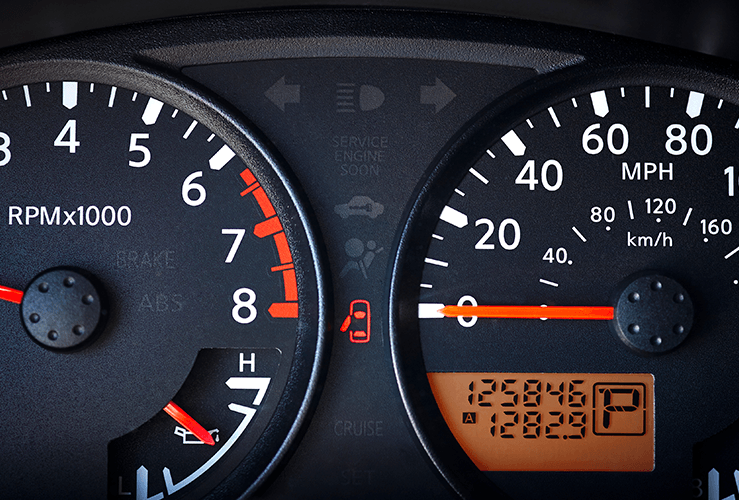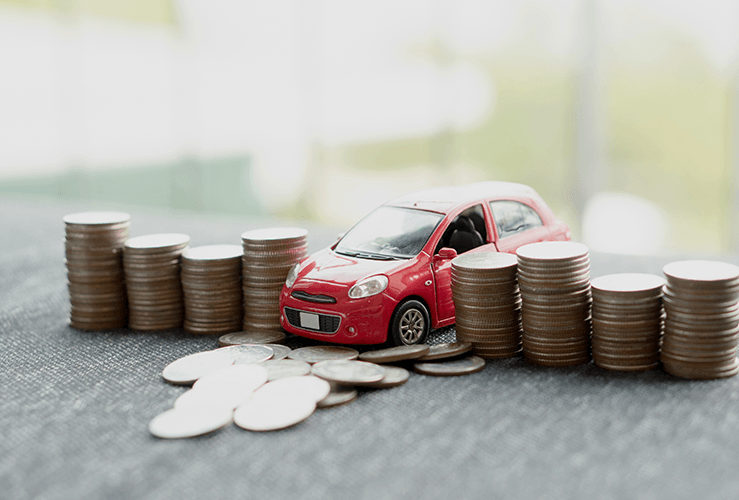Discover the common causes of speedometer failure, and how you or your mechanic can fix the problem.
Knowing your vehicle speed is essential for staying safe on the road, so ensuring your speedometer is working is non-negotiable.
You are required by law to keep your speedometer in good working order, and to ensure it is free from any obstructions.
Why Knowing Your Speed Is Critical
A broken speedometer could cause you to:
- Break speed limits (which could lead to accidents and fines)
- Drive too slowly (which could mean you impede traffic and increase the risk of an accident)
- Reach your destination later than expected
- Receive a penalty notice from the police
There are many possible causes of a broken speedometer. Some of these can be fixed easily (and inexpensively), while others may require the attention of a trained mechanic.
Here we explore common symptoms of a broken speedometer, and how to diagnose and address the issues.
How a Speedometer Works
Your car's speedometer monitors your speed using a speed sensor that measures how quickly your wheels are rotating. It then translates this data into a miles-per-hour figure - which is displayed on either an analogue dial or a digital display.

Signs of Failure
Signs of a speedometer failure are fairly obvious:
- Speedometer needle sits at zero
- Needle sits at a specific speed and does not change
- Needle jumps around in a manner inconsistent with your speed
Why Do Speedometers Fail?
Common causes of a faulty speedometer include:
- Faulty speed sensor: If your speed sensor gets damaged or fails for some other reason, it won't be able to send accurate (or any) data to the speedometer readout.
- Instrument cluster issues: Problems with the instrument cluster can cause various elements to fail including warning lights, gauges - and the speedometer.
- Damaged wiring or connectors: Today's vehicles can only function when all their associated wiring and connectors are in good condition. If any components associated with the speedometer are damaged, the speedometer won’t work.
- Damaged/worn speedometer cable: These are found in older vehicles and prevent the speedometer from working if they - or the gears they are attached to - become faulty.
- Module communication problems: Various modules exist in your car. These must be able to communicate with each other. Sometimes hardware or software issues cause this communication to break down.
How to Diagnose a Speedometer Problem
Consult your vehicle manual if you wish to learn how - or if - you can carry out any repairs yourself.
But unless you have a lot of knowledge and experience with cars, chances are you'll need the help of a professional mechanic in order to fix the problem.
They will:
- Examine the connectors and wires
- Check the fuse (replacement is quick and inexpensive)
- Use a diagnostics tool to scan for error codes
- Inspect the speedometer cable
Note: Some speedometer problems may relate to other mechanical or electrical issues with your vehicle; your mechanic should be able to pinpoint these.

How Much Will a Speedometer Repair Cost?
Speedometer repair costs vary depending on what has gone wrong. A simple fuse replacement might cost £50 or less including labour, while getting a new speed sensor fitted could cost up to hundred pounds. The make and model of your car may impact how much you pay.




